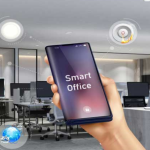
In an era where privacy is an increasingly coveted commodity, the need for robust security measures has never been more critical. Private rooms, whether they are in your home, office, or any other setting, are sanctuaries of solitude. These spaces hold our most valuable secrets, cherished possessions, and moments of quiet introspection. Ensuring the utmost privacy within these rooms is paramount, and biometric security offers an innovative and foolproof solution.
The Evolution of Security
Traditional Locks and Keys
Historically, traditional locks and keys have been our first line of defense against unauthorized entry. However, their reliability has diminished over time, as lock-picking and key duplication techniques have become more sophisticated. In a world where security breaches are a constant threat, a more advanced approach is necessary.
Enter Biometric Security
Biometric security has ushered in a new era of safeguarding private spaces. It relies on unique biological characteristics, such as fingerprints, iris patterns, or facial recognition, to grant access. These biometric identifiers are nearly impossible to duplicate or forge, providing an airtight security solution.
Biometric Security Features
Unparalleled Accuracy
Biometric security systems offer an accuracy level that traditional locks and keys can’t match. The chances of a false positive or negative are extremely low, ensuring that only authorized individuals gain access.
Convenience
Gone are the days of fumbling with keys or memorizing complex combinations. Biometric security is incredibly convenient, as it recognizes you instantly, making access effortless.
Multi-Layered Protection
Biometric systems often incorporate multiple layers of security, such as combining fingerprint and facial recognition. This multi-factor authentication adds an extra layer of protection.
Remote Access
With biometric technology, you can even grant access remotely, which is especially useful in scenarios where you need to provide access to someone when you’re not physically present.
The Vulnerabilities of Traditional Security
Vulnerability to Lock-Picking
Traditional locks can be picked, manipulated, or forced open by skilled individuals, leaving your private space exposed to intruders.
Lost or Stolen Keys
Keys can be lost or stolen, leading to potential security breaches. Replacing locks and keys can be both inconvenient and costly.
Memorization Challenges
Using passcodes or PINs require memorization and can be easily forgotten, leading to frequent lockouts.
Biometric Security for Private Rooms
Protecting Your Home
Biometric security offers an advanced layer of protection for your home, securing your personal space and loved ones. It ensures that only authorized individuals can access your home, giving you peace of mind.
Elevating Office Security
Businesses can benefit from biometric security by enhancing the protection of confidential information and valuable assets. It’s a step toward preventing unauthorized access and data breaches.
Ensuring Privacy in Healthcare
In healthcare settings, maintaining privacy is crucial. Biometric security can be implemented to secure medical records, ensuring that only authorized personnel can access sensitive patient information.
Securing Valuables
Private rooms often house our most valuable possessions. Biometric security provides peace of mind by protecting these valuables from theft or unauthorized access.
Commonly Asked Questions
1. How Does Biometric Security Work?
Biometric security systems capture and store unique biological characteristics, such as fingerprints or facial features. When an individual requests access, the system compares their biometric data to the stored records to grant or deny entry.
2. Can Biometric Data Be Stolen?
Biometric data is securely stored and encrypted. While no system is entirely immune to hacking, biometric security is far less susceptible to breaches than traditional security methods.
3. What Happens if the Biometric System Fails?
In the rare event of a system failure, most biometric systems have backup methods for accessing the room, such as a PIN or key.
4. Is Biometric Security Expensive?
The cost of biometric security systems varies depending on the level of security required and the features of the system. While the initial investment can be higher than traditional locks, the long-term benefits often outweigh the cost.
5. Can Biometric Security Be Hacked?
While no security system is entirely hack-proof, biometric security’s multi-layered approach makes it significantly more challenging to breach. The risk of hacking is minimal compared to traditional locks.
Final Words
Biometric security is the ultimate answer to ensuring the privacy of your private rooms. It offers unparalleled accuracy, convenience, and multi-layered protection, making it the ideal choice for securing your home, office, or any space where privacy is paramount. Say goodbye to the vulnerabilities of traditional security, and embrace the advanced technology that biometrics provides. Your privacy and peace of mind are worth the investment.
Advertisement








